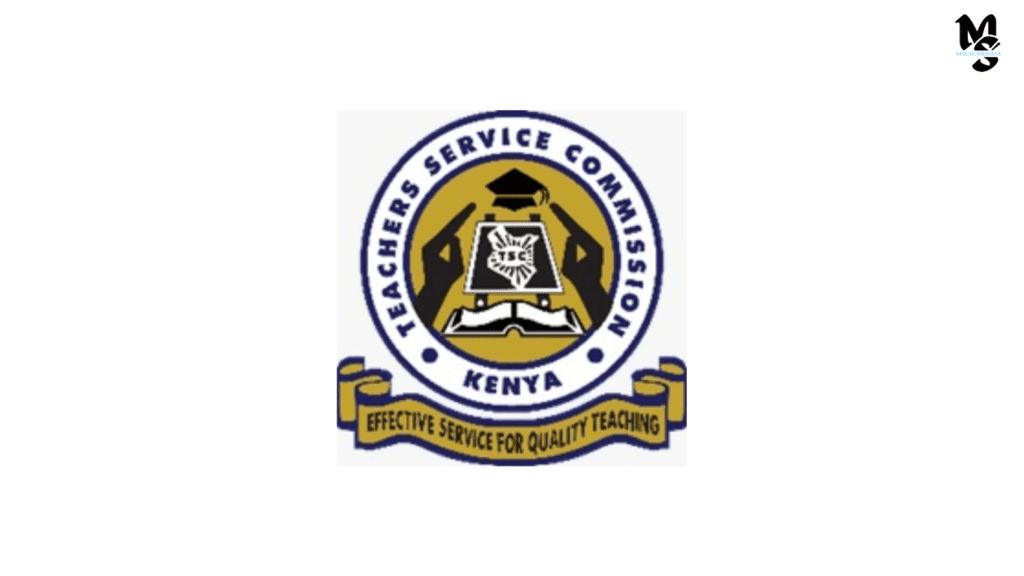Age and Job Group Eligibility: Key Requirements for TSC Promotions


Introduction
The process of promotions within the Teacher Service Commission (TSC) is governed by a variety of criteria, among which age and job group eligibility play pivotal roles. These criteria are essential as they ensure that promotions are awarded to individuals who not only meet the prerequisite qualifications but also possess the necessary experience and tenure to handle enhanced responsibilities effectively. Understanding these requirements is crucial for educators aiming for advancement in their careers.
Age eligibility is often tied to the perceptions of maturity, experience, and readiness to take on more complex roles. The TSC considers age in conjunction with other factors, as it reflects the candidate’s journey through various job groups and experiences gained over time. As educators progress through different job roles, they accumulate valuable insights and practical knowledge, positioning them favorably for promotional opportunities. This evaluation of age alongside job group status provides a framework for recognizing those who have demonstrated a sustained commitment to professional growth.
Job group eligibility is another vital component of the promotion framework. The TSC categorizes jobs into different groups based on a range of factors, including job responsibilities, qualifications, and service length. Each job group sets specific prerequisites for advancement, ensuring that only candidates who have shown proficiency and dedication within their current roles are eligible for promotion to the next level. This tiered approach emphasizes the significance of experience and performance, creating a structured pathway for career progression.
In considering these factors collectively, it becomes evident that age and job group eligibility are not mere bureaucratic requirements; rather, they embody a comprehensive evaluation of a teacher’s professional journey. By exploring these criteria in detail, one can better appreciate their importance in the TSC promotion framework and how they serve to foster a competent and dedicated teaching workforce.
Age-Based Eligibility Requirements
In the context of teacher promotions within the Teaching Service Commission (TSC), age-based eligibility requirements play a crucial role, particularly for educators in job groups C1 and C3. The TSC has established specific minimum and maximum age limits that significantly influence the eligibility of teachers for promotions. These age requirements are designed to ensure a balanced and sustainable workforce within the education sector.
Teachers in job group C1, which generally includes newly qualified or entry-level educators, must meet a minimum age of 23 years. This requirement ensures that individuals entering the teaching profession possess a level of maturity and life experience deemed necessary for effective classroom management and student interaction. On the other hand, the maximum age limit for this job group is often set at 45 years. This upper boundary is established to encourage a dynamic workforce, allowing for regular infusion of fresh ideas and perspectives that can enhance educational practices.
The rationale behind these age limits is not solely to establish a fair promotion process but also to foster a teaching environment that values experience while welcoming innovation. Understanding and adhering to these age-based eligibility requirements is vital for educators aiming for upward mobility within the teaching profession.
Job Group-Based Requirements
The Teacher Service Commission (TSC) of Kenya has established a comprehensive framework to facilitate promotions within the teaching profession. Central to this framework are the job group classifications, which delineate the roles and responsibilities of teachers at various levels. Understanding these job groups is crucial for educators aiming to advance their careers, as each group encompasses specific requirements and expectations that determine eligibility for promotion.
Teachers are categorized into several job groups, each corresponding to distinct responsibilities and professional qualifications. For instance, Job Group B typically comprises newly qualified teachers who are at the beginning of their careers. As they gain experience and subject mastery, they can move to Job Group C, which requires additional training and proven competencies. Progression through these groups not only reflects a teacher’s experience but also their contributions to educational excellence and the welfare of their students.
Advancement to higher job groups, such as Job Group D or E, necessitates meeting specific performance benchmarks set by the TSC. These standards include professional development, participation in continuous training programs, and consistent evaluation of classroom effectiveness. The TSC places emphasis on active engagement in pedagogical innovations, which further enhances a teacher’s qualifications for promotion. In addition, teachers who take up leadership roles, such as mentoring junior staff or leading educational programs, may find themselves in a better position for advancement.
Ultimately, understanding the job group criteria established by the TSC is essential for teachers seeking to climb the professional ladder. Each job group not only defines a teacher’s career trajectory but also underscores the importance of ongoing professional growth and the pursuit of excellence in teaching. Therefore, teachers should remain informed about the requirements tied to their respective groups, ensuring they meet the established criteria as they strive for promotions within the TSC framework.
Why TSC Prioritizes Age and Experience in Promotions
The Teachers Service Commission (TSC) emphasizes age and accumulated experience when considering promotions within the educational sector. This focus arises from the understanding that these factors significantly contribute to the overall efficacy of teaching and leadership capabilities in higher job group roles. As teachers progress in their careers, they not only gain extensive subject knowledge but also develop essential skills in classroom management, communication, and pedagogical strategies that enhance student learning outcomes.
One major reason TSC prioritizes experience is that seasoned educators are more adept at navigating the complexities of the educational environment. With years of practice, they become proficient in addressing various challenges they may encounter in the classroom, which ultimately leads to improved student engagement and retention rates. Moreover, experienced teachers often serve as mentors to newer educators, providing guidance and support that fosters professional development within schools. This collective experience creates a nurturing environment conducive to continuous improvement and innovation in teaching methods.
Age also plays a pertinent role in TSC’s promotion framework. Typically, older professionals bring with them a wealth of life experiences that enrich their perspective on education, often translating to greater empathy and understanding in student interactions. Furthermore, older educators are likely to have engaged in diverse roles throughout their careers, such as leadership positions or participation in committees, thereby enhancing their capabilities to lead and implement effective educational strategies. The combination of age and experience, therefore, aligns with TSC’s vision of promoting individuals who can make a significant impact on the educational landscape.
In summary, the emphasis on age and accumulated experience within TSC’s promotion criteria reflects a commitment to enhancing educational quality through experienced leadership. By prioritizing these factors, the commission aims to cultivate a robust teaching workforce capable of addressing the evolving needs of students and the education system as a whole.
Conclusion
Understanding the eligibility criteria for promotions within the Teaching Service Commission (TSC) framework is crucial for educators aiming to advance their careers. The age and job group requirements play a significant role in determining promotion eligibility, making it essential for teachers to stay informed about these parameters. Age limits often dictate the timeline within which educators can seek promotions, while job groups categorize teachers into distinct levels of responsibility and compensation. This classification system influences not only their current role but also the trajectory of their professional advancement.
Teachers are encouraged to routinely assess their eligibility based on these criteria, ensuring they meet the necessary age requirements and are aligned with their specific job group. This proactive approach enables teachers to gauge their readiness for potential job advancements, thereby positioning themselves favorably when opportunities arise. Moreover, familiarity with the TSC’s promotion policies can empower educators to plan their career paths strategically.
Continual professional development, networking with peers, and engaging with mentorship programs can further complement efforts to qualify for promotions. Educators should actively participate in training workshops and pursue additional qualifications that align with their career goals and enhance their teaching competencies. By cultivating these professional skills and understanding the dynamics of age and job group eligibility, teachers can significantly increase their chances of securing promotions and achieving career growth within the TSC framework.
In summary, staying informed about the age and job group eligibility criteria is vital for teachers aspiring to advance their professional journeys. By taking the initiative to explore available resources and prepare adequately for upcoming promotional opportunities, educators can not only boost their careers but also contribute positively to the educational landscape.






